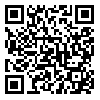Volume 18, Issue 3 (11-2020)
sjsph 2020, 18(3): 275-288 |
Back to browse issues page
Download citation:
BibTeX | RIS | EndNote | Medlars | ProCite | Reference Manager | RefWorks
Send citation to:



BibTeX | RIS | EndNote | Medlars | ProCite | Reference Manager | RefWorks
Send citation to:
Mansurnejad Z, Malekpour M, Ghamarani A. Effectiveness of Parental Autonomy Support Training on School Student’s'
Externalized Behavior. sjsph 2020; 18 (3) :275-288
URL: http://sjsph.tums.ac.ir/article-1-5921-en.html
URL: http://sjsph.tums.ac.ir/article-1-5921-en.html
1- PhD. Department of Psychology and Education of Children with Special Needs. Faculty of Psychology and Education, University of Isfahan, Isfahan, Iran , zmansurnejad@yahoo.com
2- PhD. Professor, Department of Psychology and Education of Children with Special Needs. Faculty of Psychology and Education, University of Isfahan, Isfahan, Iran
3- PhD. Assistant Professor, Department of Psychology and Education of Children with Special Needs. Faculty of Psychology and Education, University of Isfahan, Isfahan, Iran
2- PhD. Professor, Department of Psychology and Education of Children with Special Needs. Faculty of Psychology and Education, University of Isfahan, Isfahan, Iran
3- PhD. Assistant Professor, Department of Psychology and Education of Children with Special Needs. Faculty of Psychology and Education, University of Isfahan, Isfahan, Iran
Abstract: (1826 Views)
Background and Aim: Childhood and adolescent externalizing behavior is a serious public health issue, and the family, as an underlying factor, may play an important role in preventing or reducing behavioral problems in childhood and adolescence. The aim of this study was to investigate the effective of parental autonomy support training on school students' externalizing behavior.
Materials and Methods: Thirty school students who had got high scores in the Child Behavior Checklist (CBCL) were selected and randomly assigned to an experimental (N=15) or control (N=15) group. Mothers of the pupils in the experimental group participated in seven 90-minute sessions receiving parental autonomy intervention training; the control group did not received any training. The CBCLs were completed before and after the intervention and compared. The data were analyzed using the multivariate covariance analysis (MANCOVA).
Results: Multivariate covariance analysis showed a statistically significant difference between the scores of the experimental and control groups (p <0.01, F = 21.123, Wilk's Lambda = 0.266). However, no significant difference was found between the two groups as regards aggression, breaking the law and externalized behavior. Further analysis of the data revealed that parental autonomy support skills training favorably influenced the school students' aggression, law-breaking and externalized behavior.
Conclusion: Based on the findings it can be concluded that parental autonomy support training can be effective in decreasing externalized behavior in school students. Hence, it is recommended to develop and implement training programs for parents and school teachers in areas of meaningful rationales, use of non-controlling language and offering meaningful choices aiming to reduce and prevent externalized behavior in school students.
Materials and Methods: Thirty school students who had got high scores in the Child Behavior Checklist (CBCL) were selected and randomly assigned to an experimental (N=15) or control (N=15) group. Mothers of the pupils in the experimental group participated in seven 90-minute sessions receiving parental autonomy intervention training; the control group did not received any training. The CBCLs were completed before and after the intervention and compared. The data were analyzed using the multivariate covariance analysis (MANCOVA).
Results: Multivariate covariance analysis showed a statistically significant difference between the scores of the experimental and control groups (p <0.01, F = 21.123, Wilk's Lambda = 0.266). However, no significant difference was found between the two groups as regards aggression, breaking the law and externalized behavior. Further analysis of the data revealed that parental autonomy support skills training favorably influenced the school students' aggression, law-breaking and externalized behavior.
Conclusion: Based on the findings it can be concluded that parental autonomy support training can be effective in decreasing externalized behavior in school students. Hence, it is recommended to develop and implement training programs for parents and school teachers in areas of meaningful rationales, use of non-controlling language and offering meaningful choices aiming to reduce and prevent externalized behavior in school students.
Type of Study: Research |
Subject:
Public Health
Received: 2020/12/19 | Accepted: 2020/11/30 | Published: 2020/11/30
Received: 2020/12/19 | Accepted: 2020/11/30 | Published: 2020/11/30
Send email to the article author
| Rights and permissions | |
 |
This work is licensed under a Creative Commons Attribution-NonCommercial 4.0 International License. |





